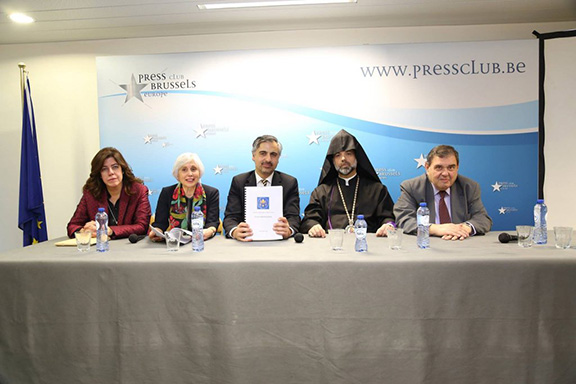Month: December 2016
-

Cilicia Catholicosate Files Appeal in European Court
(source: EAFJD press release, ARMENIAN WEEKLY) On December 7, the Armenian Catholicosate of Cilicia officially filed the application to reclaim the historical headquarters of the Holy See of the Great House of Cilicia from Turkey to the European Court of Human Rights (ECHR). Following its submission, a press conference took place, which featured European Armenian…